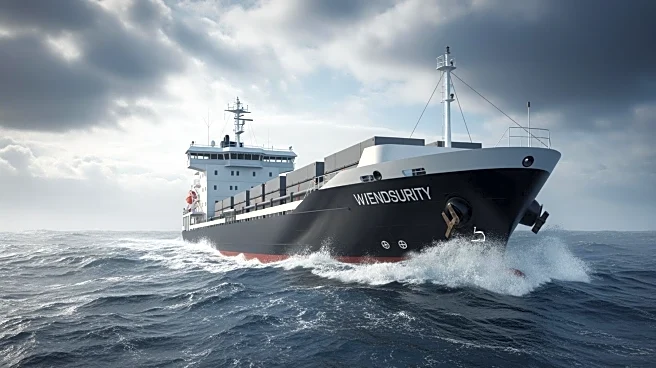What's Happening?
A tanker named MV Falcon, carrying liquefied petroleum gas (LPG), caught fire off the coast of Yemen in the Gulf of Aden. The incident has raised questions about the cause of the explosion and the ship's connections to Iran's sanctioned oil trade. The vessel,
reportedly part of Iran's 'ghost fleet,' was en route to Yemen's Ras Isa port, suggesting the cargo was intended for the Houthi rebels. The ship was registered under the flag of Cameroon and owned by an Indian company. A total of 24 crew members were on board, with one missing after the fire. The European Union suggested the incident might have been accidental, while Iranian and Israeli officials denied involvement.
Why It's Important?
The incident highlights ongoing tensions in the region and the complexities of maritime security, especially concerning Iran's clandestine oil trade. The involvement of a 'ghost fleet' underscores the challenges in enforcing international sanctions. The potential link to the Houthi rebels could further complicate the geopolitical landscape, affecting regional stability. The incident also raises concerns about the safety of maritime routes crucial for global energy supplies, impacting international shipping and trade.
What's Next?
Further investigations are likely to determine the cause of the explosion and the ship's connections. International stakeholders, including maritime security agencies, may increase surveillance and enforcement efforts in the region. The incident could prompt discussions on enhancing maritime security protocols and addressing the use of 'ghost fleets' in circumventing sanctions.















